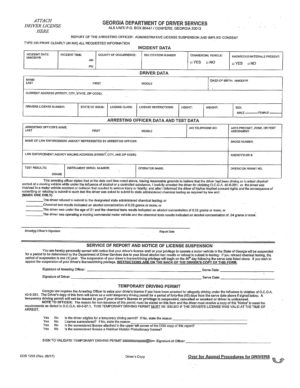Arrested for a DUI in Lawrenceville?
Our Lawrenceville DUI lawyers can speak with you about your DUI case anytime, including after-hours, weekends, and holidays! Call Chestney & Sullivan today: 404.816.8777

If you have been arrested for a DUI in Lawrenceville, experienced DUI trial attorney James “Skip” Sullivan can discuss your case anytime – including after-hours and weekends! We understand that DUIs happen at the worst possible times. Call us at 404.816.8777 today. Mr. Sullivan is a former prosecutor. We offer a free in-office consultation on how we can effectively defend your Lawrenceville DUI charges. Suppose you are charged with a DUI in Lawrenceville. In that case, our experienced Lawrenceville DUI lawyers are prepared to fight your Lawrenceville DUI charges in Lawrenceville Municipal Court or Gwinnett County State Court to avoid a conviction. Lawrenceville Municipal Court is located at 70 S. Clayton Street, Lawrenceville, Georgia 30024, in the Lawrenceville City Hall.
DUI’s in Lawrenceville Municipal Court
Our Lawrenceville DUI lawyers are familiar with Lawrenceville Municipal Court and the Gwinnett County judicial system, as we appear there regularly. Judge Ethan Pham is the Chief Judge in Lawrenceville Municipal Court, and James Wall is the Associate Judge, although other judges may sit on the bench from time to time. Judge Still retired in December 2020 after 40 years on the bench. The solicitor (prosecutor) of your Lawrenceville DUI case is Frank Hartley or Jill Hauserman.
Lawrenceville Municipal Court is a “limited jurisdiction” court, meaning that they do not have jury trials there. If you want a judge to decide your Lawrenceville DUI case without a jury, that is called a “bench trial.” At a bench trial, the prosecution still has the burden to prove each element of an offense beyond a reasonable doubt at a bench trial. The judge must also decide if the prosecution has met its burden. Sometimes, a “bench trial” is a sound strategy; sometimes, it is not.
Transferring a Lawrenceville DUI case to Gwinnett State Court

Often, a jury trial is the best possible option to avoid a DUI conviction on your Lawrenceville DUI case. Because the Lawrenceville Municipal Court does not conduct jury trials, your case must be sent to Gwinnett County State Court, located in the Gwinnett Justice and Administration Center, for trial. Gwinnett State Court currently has six state court judges and two senior state court judges. Your case will be assigned to one of the six judges once your case is filed with the Gwinnett County Clerk of Court.
Who is the Solicitor in Gwinnett State Court?
The current elected Gwinnett County Solicitor is Lisamarie Bristol. Generally, two prosecutors are assigned to each of the six state court judges. Each Gwinnett County State Court judge handles their caseloads differently. Because our Gwinnett DUI lawyers often contest DUI charges in Gwinnett County State Court, we know how each particular courtroom operates.
How our skilled Lawrenceville DUI lawyers build a successful defense in your DUI case:
To build a strong DUI defense in Georgia, our Lawrenceville DUI lawyers start by meeting with you about your Lawrenceville DUI case and learning as much as possible from you about what happened. Using this core information, we can look for more evidence to help our defense by using specialized resources as needed to determine if all testing and other details of your Lawrenceville DUI arrest were accurate and legal. We then gather information, videos, 911 calls, possible surveillance videos, police reports, documents, road/scene conditions, and more. There are also times when we use the services of toxicologists, accident reconstructionists, private investigators, breath test/field sobriety experts, medical professionals, and video illustrators, to name a few, to help build a solid defense in your Lawrenceville DUI case. Our Lawrenceville DUI lawyers then analyze your case, starting with whether the initial stop or reason why the police were involved was legal. We also look for suppression issues with the admissibility of field sobriety tests or state chemical tests (breath, blood, or urine). Our DUI attorneys meet as a group and then develop strategies to best conduct the license suspension hearings, preliminary/committal hearings, motion hearings, and trials. This approach is an effective way to ensure we are prepared to defend your Lawrenceville DUI.
Does the Lawrenceville Police Department have a DUI Task Force?

The Lawrenceville Police Department is located at 300 Jackson Street, Lawrenceville, Georgia 30046, on the corner of Scenic Highway 124 and Jackson Street. The department has a Uniform Patrol Division and a Special Operations Division, “Special Ops.” The Special Ops Division in many police departments controls DUI enforcement campaigns, and is essentially a DUI task force. They conduct sobriety checkpoints and concentrated patrols looking for impaired drivers. They will sometimes work with the Gwinnett Police and Georgia State Patrol on high-profile DUI campaigns promoted by the Governor’s Office of Highway Safety.
Field Sobriety Tests Examined:
In most DUI investigations, the police will conduct Standardized Field Sobriety Evaluations developed and overseen by the National Highway Traffic Safety Administration (NHTSA). They consist of three standardized evaluations, followed by blowing into a preliminary breath test screening device (PBT or alco-sensor). The three standardized evaluations are the Horizontal Gaze Nystagmus Evaluation, Walk and Turn, and One Leg Stand. Then, a portable breath test device is administered to determine if what the officer is seeing is caused by alcohol, some other drug, or nothing at all. These evaluations are standardized, meaning they are to be administered and interpreted the same way every time by every trained officer. If the DUI field sobriety evaluations are not administered in a standardized manner, the results may be compromised.
Horizontal Gaze Nystagmus evaluation (HGN):
Nystagmus can be explained as the involuntary jerking of your eyes. Most people have some form of nystagmus, but it is usually imperceptible. The nystagmus or “jerking” can be caused by a central nervous system depressant, head injury, sleep deprivation, or other neurological disorders. The officer conducts a series of passes at varying speeds, looking for “clues” or nystagmus throughout the Horizontal Gaze Nystagmus evaluation (HGN) and scoring those clues.
Walk and Turn and One Leg Stand evaluations:
The Walk and Turn and One-Leg Stand evaluations are also standardized. They must be administered in a specific way with clear instructions to the driver so there is no confusion about how the driver will perform the evaluations. These evaluations are not scientific, and if the officer does not demonstrate to the driver how to perform the evaluation or fails to give clear, standardized instructions, then the results may be compromised and not valid. Other factors, including weather, road conditions, injuries, and age, may affect these evaluations.
Preliminary Breath Test Screening Device (PBT or alco-sensor):
A preliminary breath test screening device (PBT) is the last evaluation. The device must be from an approved Georgia Bureau of Investigation (GBI) list. This device does give a number for alcohol concentration. Still, the numerical results are not admissible at trial because it is not as reliable as the official state test on an Intoxilyzer 9000 (measuring breath through infrared spectrophotometry) or a blood test (using a mass spectrometer). However, an officer may testify that the PBT showed positive or negative for alcohol.
Mr. Sullivan is certified in Standardized Field Sobriety evaluations and received his training with the Conyers Police Department and the Rockdale County Sheriff’s Department). There are challenges to the admissibility of these evaluations and how an officer can testify at trial concerning the evaluations administered. Our experienced Lawrenceville DUI lawyers can discuss how we attack field sobriety evaluations in Gwinnett or Lawrenceville DUI cases. Call Chestney & Sullivan today at 404.816.8777.
Can I enter a guilty plea myself and avoid hiring a Lawrenceville DUI defense lawyer?
There is a saying that “a person who represents himself has a fool for a client.” DUI cases are one of the most serious cases that are prosecuted in Lawrenceville Municipal Court or Gwinnett County State Court. Even if you think you are guilty and may not want to fight your case all the way, there are matters that a skilled Lawrenceville DUI lawyer is better able to handle than someone representing him or herself. Here are some reasons why you may consider hiring us rather than representing yourself:
- You can jeopardize your driving privileges if you go to court and enter a guilty plea by yourself. If you have been arrested by a Lawrenceville DUI officer, Georgia State Patrol, or any Georgia police officer, you should have been notified of an administrative license suspension action. If you enter a guilty plea without properly addressing the license suspension action, you will not be able to get a limited permit (if you are eligible to get one at all) until and unless the administrative action is conducted properly.
- If your license is suspended for refusing the State’s chemical test from losing a license suspension hearing or failing to address a license suspension action within 30 days from your arrest, your Georgia driver’s license or driving privileges will be suspended for a year with NO PERMIT. Properly coordinating and handling the Lawrenceville DUI criminal charges and the license suspension action can improve your chances of being able to drive.
- Other charges, in addition to your Lawrenceville DUI charge, may be more serious and carry more punishment than the DUI charge itself.
- Sometimes, the prosecutor gives a bad plea offer. Even if you decide not to contest your case, an experienced DUI attorney who is familiar with Lawrenceville Municipal Court, as well as Gwinnett County State Court or Superior Court, can assess a plea offer to determine if it is worth taking or moving your case to state court and decide to take your case to trial.
- If you decide to represent yourself at trial, the Georgia Rules of Evidence still apply. Lawyers go to law school for years to learn these rules, and you will be at the mercy of a skilled prosecutor and judge if you are not careful.
Administrative License Suspension

IMPORTANT INFORMATION CONCERNING YOUR DRIVER’S LICENSE WHILE YOUR LAWRENCEVILLE DUI CRIMINAL CHARGES ARE PENDING IN COURT
Besides your criminal case pending in Lawrenceville Municipal Court, you are likely facing an administrative license suspension. There is only a limited time to request this separate hearing that the Office of State Administrative Hearings conducts to preserve your driving privileges. If you have been charged with a DUI in Lawrenceville, chances are the officer served you with a notice of a license suspension action. Whether you refused the State’s chemical test or the breath test results indicated an alcohol concentration above the legal limit, Georgia law requires your Lawrenceville DUI officer to serve you notice of a license suspension action. The form that is used is called a DDS-1205 form. This form is either yellow or white, and the Lawrenceville DUI officer may have had you sign it. Sometimes this paperwork gets lost (you may have received it but it may have been misplaced, or it may have been lost at the jail).
- We strongly suggest that you set up an online account with the Georgia Department of Driver Services to monitor the status of your driver’s license: https://dds.georgia.gov/online-services

Regardless of whether you have received a DDS-1205 form from your Lawrenceville DUI Officer, you need to understand that you only have 30 days to request a hearing to preserve your driving privileges or waive your hearing through the Georgia Department of Driver Services by opting for an ignition interlock device permit.
Three tracks you can take [beware of choosing without the advice of an experienced Lawrenceville DUI lawyer]:
-
Do nothing within 30 days of the date of your Lawrenceville DUI arrest:
In most cases, we do not recommend this path. If you do nothing and your Lawrenceville DUI officer initiates an administrative license suspension action, then on the 46th day after the date of your Lawrenceville DUI arrest, the Georgia Department of Driver Services will automatically suspend your driving privileges for one year with no permit to drive. Even if you did not receive the DDS-1205 form as a result of your DUI arrest, our Lawrenceville DUI lawyers still recommend that you take some sort of action instead of doing nothing. However, there are limited circumstances where we recommend our clients do nothing regarding a license suspension action, but those circumstances are rare.
-
Request an administrative hearing:
This is the traditional track that has been the law for many years now, except now there are thirty days instead of ten business days to take action. This track is where a request for an administrative hearing is submitted to the Georgia Department of Driver Services challenging the Lawrenceville DUI officer’s decision to administratively suspend your driver’s license for testing above Georgia’s “per se” legal limit for alcohol concentration or for refusing your Lawrenceville DUI officer’s request for a state-administered chemical test of your breath, blood, urine, or other bodily substances. A $150 filing fee is made payable to the Dept. of Driver Services for DDS to process the hearing request.
-
Properly waive your right to an administrative hearing in your Lawrenceville DUI case and have an ignition interlock installed:
This track came into effect July 1, 2017. This allows the first DUI arrest in five years for drivers to be able to drive in the state of Georgia and fight their Lawrenceville DUI criminal case without losing the privilege to drive. It comes with a cost, of course. It involves you waiving your right to an administrative hearing through the Georgia Department of Driver Services. You will need to install an ignition interlock device on your vehicle for a minimum of 120 days if you tested over the “per se” legal limit or one solid year of having the ignition interlock device installed in your vehicle (and driving under the confines of an ignition interlock permit) if you refused the Lawrenceville DUI officer’s request for a state-administered chemical test. If you choose this track, we highly advise installing the ignition interlock first, then going to DDS within 30 days from the date of arrest to obtain the permit. There are obvious concerns and pitfalls in choosing this track. For many people, the stigma of having the ignition interlock device installed in their vehicle is not worth it. The ignition interlock device is also expensive: it requires an installation fee and a monthly monitoring fee. And if you remove it while under your ignition interlock permit, tamper with it, or it tests positive, your permit to drive may be revoked for six months – meaning no driving at all. In addition to waiving your right to an administrative hearing and having an ignition interlock device installed on your vehicle, you must also meet the following conditions:
- An application for the permit must be made with DDS within 30 days of the person being served notice of the administrative license suspension (ALS) by the Lawrenceville DUI arresting officer through the DDS-1205 form (usually 30 days from the date of arrest), or—in the event of a DDS-1205S form—within 30 days of receiving such notice of the ALS from DDS (from a blood test result that was not procured by a search warrant);
- The ALS cannot stem from a motor vehicle accident involving fatalities or serious injuries;
- The person must be licensed in Georgia and not have any other suspensions, cancellations, or revocations against their Georgia driver’s license;
- If the person holds a Georgia commercial driver’s license (CDL), they must downgrade to a non-commercial Georgia driver’s license to obtain and maintain the permit;
- The person cannot have any convictions for DUI in the 5 years preceding application for the permit. If there is a DUI arrest with a DUI conviction within 5 years of the current Lawrenceville DUI arrest, the person can still opt for track 2 – requesting an administrative hearing, or track 1 – do nothing at all;
- The person must surrender their Georgia driver’s license, either to the Lawrenceville DUI officer at the time of arrest or to DDS before issuance of the permit; and,
- The person must pay a $25.00 permit fee to the Georgia Department of Driver Services.
The period a person must successfully maintain the ignition interlock device on their vehicle will be based on whether they consent to or refuses the state-administered chemical test requested by the Lawrenceville DUI arresting officer. A person who consents to the state-administered chemical test and opts for the new permit will be required to successfully maintain the ignition interlock device on their vehicle for 4 months. If they are subsequently acquitted of the underlying Lawrenceville DUI charge, or the underlying DUI charge is dismissed or reduced, the ignition interlock device may be removed at no cost and the driver’s license may be replaced. A person who refuses the state-administered chemical test and opts for the new permit will be required to successfully maintain the ignition interlock device on their vehicle for 12 months, regardless of the outcome of the underlying Lawrenceville DUI charge.
Successful maintenance of the ignition interlock device must be evidenced by the permit holder to DDS through the production of satisfactory monthly monitoring reports before removing the ignition interlock restriction from the permit. A permit may be renewed for a fee of $5.00 if additional time is needed for the permit holder to comply with the terms of the ignition interlock device. Still, it may only be renewed one time once the permit holder becomes eligible to reinstate their driver’s license. Following the designated term of successful compliance, the ignition interlock device restriction may be removed from the limited driving permit in person at a DDS customer service center for a fee of $100.00 (or $90.00 if removal of the restriction is requested by mail or other approved alternate means). The removal fee is in addition to any reinstatement fee that may be required.
As the title of the ignition interlock device limited permit suggests, there are limitations on where you can drive while on the IID permit:
- Going to their place of employment or performing the regular duties of their occupation;
- Receiving scheduled medical care or obtaining prescription drugs;
- Attending a college or school at which they are regularly enrolled as a student;
- Attending regularly scheduled sessions or meetings of treatment support organizations for persons who have an addiction or abuse problems related to alcohol or other drugs, which organizations are recognized by the commissioner;
- Attending under court order any driver education or improvement school or alcohol or drug program or course approved by the court which entered the judgment of conviction resulting in suspension of his driver’s license or by the commissioner;
- Attending court, reporting to community supervision, juvenile probation, or Article 6 of Chapter 8 of Title 42 probation office, reporting to a community supervision officer, county or Department of Juvenile Justice probation officer or probation officer serving pursuant to Article 6 of Chapter 8 of Title 42, or performing community service;
- Transporting an immediate family member who does not hold a valid driver’s license for work, to obtain medical care or prescriptions, or to school;
- Attending any program, event, treatment, or activity ordered by a judge presiding in an accountability court, as such term is defined in Code Section 15-1-18; or
- Conduct monthly monitoring visits with the permit holder’s ignition interlock device service provider.
Contact our dedicated Lawrenceville DUI lawyers today at 404.816.8777 to discuss your DUI case. Our DUI defense lawyers are experienced in fighting DUI charges and handling license suspension actions. We can review your case and prepare a strategy for your Lawrenceville DUI criminal case and your license suspension action.
So, I properly requested a license suspension hearing in my Lawrenceville DUI case. What happens next?
The license suspension action is a civil action separate from your Lawrenceville DUI criminal charges and only deals with your license or privilege to drive in this state. The administrative license suspension action is litigated by a completely separate court from your Lawrenceville DUI criminal case. Once the Georgia Department of Driver Services processes your request for a hearing, your case is sent to the Georgia Office of State Administrative Hearings (OSAH), where a hearing will be scheduled in front of a judge from that agency. Typically, a hearing date is set roughly 60 days from your Lawrenceville DUI arrest date. Once a hearing is requested, the Department of Driver Services will extend your driving privileges until an order is entered from an OSAH judge.
The scope of the hearing is very limited:
At a hearing, the OSAH judge has a limited role in deciding your case. The judge is bound by law to only look at certain statutory factors to determine whether those factors were met based on the evidence presented at the hearing. That is it. The judge does not look at your criminal or driver’s history. The judge is not concerned about your job, transportation issues with your children’s school or daycare, or any other hardship you may have if your license is suspended. The judge’s only role in a license suspension hearing is to determine if the following factors were met:
- Whether the Lawrenceville DUI law enforcement officer had reasonable grounds to believe the person was driving or in actual physical control of a moving motor vehicle while under the influence of alcohol or a controlled substance and was lawfully placed under arrest for violating Code Section 40-6-391 (the DUI statute); or
- Whether the person was involved in a motor vehicle accident or collision resulting in serious injury or fatality and
- Whether at the time of the request for the test or tests the Lawrenceville DUI officer informed the person of the person’s Implied Consent rights and the consequences of submitting or refusing to submit to such test; and
- Whether the person refused the test; or whether a test or tests were administered and the results indicated an alcohol concentration of 0.08 grams or more or, for a person under the age of 21, an alcohol concentration of 0.02 grams or more or, for a person operating or having actual physical control of a commercial motor vehicle, an alcohol concentration of 0.04 grams or more; and
- Whether the test or tests were properly administered by an individual possessing a valid permit issued by the Division of Forensic Sciences of the Georgia Bureau of Investigation on an instrument approved by the Division of Forensic Sciences or a test conducted by the Division of Forensic Sciences, including whether the machine at the time of the test was operated with all of its electronic and operating components prescribed by its manufacturer properly attached and in good working order, which shall be required. A copy of the operator’s permit showing that the operator has been trained on the particular type of instrument used and one of the original copies of the test results or, where the test is performed by the Division of Forensic Sciences, a copy of the crime lab report shall satisfy the requirements of this subparagraph.
How is the OSAH hearing conducted?
Like other court proceedings, the judge will enforce the Georgia Rules of Evidence. Because the burden is on your Lawrenceville DUI officer to establish that the statutory factors were met, the Lawrenceville DUI officer testifies first. Some jurisdictions allow the officer to get help from the prosecutor’s office, or if the officer is a Georgia State Trooper, an attorney paid by the State of Georgia assists the officer in direct examination. The Lawrenceville DUI officer is then subject to cross-examination. Sometimes, we may decide to place our clients or other witnesses on the stand for direct examination. Our witnesses would then be subject to cross-examination from the other side. Once the testimony and presentation of the evidence are finished, each side can make a closing argument. The judge will then make a decision typically within 5 business days and will transmit that decision to the parties and the Georgia Department of Driver Services. If there is an error in how the judge ruled, there is an appellate process available to review the court’s decision.
What happens if I win the hearing?
If the judge finds that one or more of the applicable statutory factors above are not met, then the judge will issue an order reversing the suspension action, transmit it to the Georgia Department of Driver Services, and then Georgia DDS will delete the license suspension action off your driver’s history (no administrative license suspension). This does not mean that your Lawrenceville DUI criminal charges are being dismissed, but an OSAH hearing can be a great tool to gain an advantage in your Lawrenceville DUI criminal case.
What happens if I lose my hearing?
If the judge finds that all of the applicable statutory factors were met by a preponderance of the evidence (a lower standard of proof than beyond a reasonable doubt), then the judge will issue an order affirming the license suspension action and will transmit the order to the Georgia Department of Driver Services, who will then impose the license suspension. Again, because the burden on the Lawrenceville DUI officer is so low to meet in these license suspension hearings, there is a good possibility that your license may be suspended. However, we still may be able to gain an advantage in the criminal case based on testimony from the license suspension hearing. If the judge committed an error in a ruling, the decision can be appealed. Also, if your Lawrenceville DUI charge is reduced, or dismissed, or you are found not guilty, the suspension is lifted and deleted from your driver’s history as a matter of law.
Can I handle the license suspension hearing myself in my Lawrenceville DUI case?
Because an administrative license suspension from a Georgia DUI arrest is a very complex subject that even many lawyers don’t understand, we strongly encourage you to contact our Lawrenceville DUI lawyers right away to discuss your Lawrenceville DUI case. There are simply too many variables that can impact your driving privileges to be discussed here without knowing the specific facts of your case and your prior criminal history. Remember, you only have 30 days to request a license suspension hearing through the Georgia Department of Driver Services.
Call our experienced Lawrenceville DUI lawyers today:
If you are facing a Lawrenceville DUI charge, or license suspension action, or have been ticketed for a serious traffic offense, contact our experienced Lawrenceville DUI lawyers today. We will meet with you free of charge to discuss your options, and provide advice based on our experience in the court where your case will be heard. Call us today at 404.816.8777.







